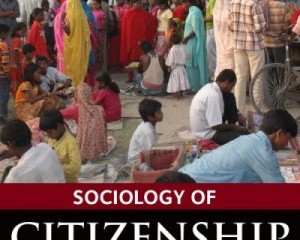
Book Review: ‘Patronage as Politics in South Asia’ by Anastasia Piliavsky (ed.)
In March, Uday Chandra of the Max Planck Institute reviewed ‘Patronage in Politics in South Asia’ for our Migration and Citizenship. In this post, I want to respond with my own analysis of the book’s arguments. It is true, as Anastasia Piliavsky points out in her superb introduction, that patronage has long been treated as a distasteful element of developing societies. Personalised exchange between social unequals has been viewed as either a perversion of liberalism’s central tenets of equality and freedom of choice or as a screen concealing exploitation. Quid pro quo electoral exchanges, in which votes are bartered for particular services rendered, are considered ‘bad’ democratic practice. And of course, the use of public power for private gain is unequivocally condemned as corruption. It …










